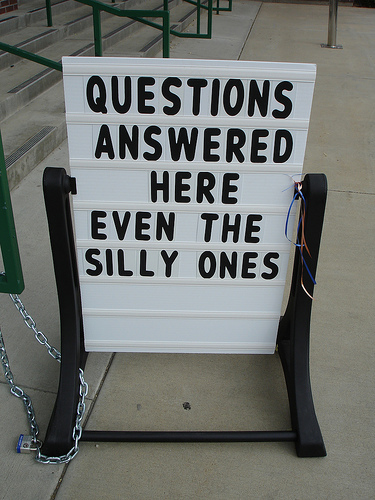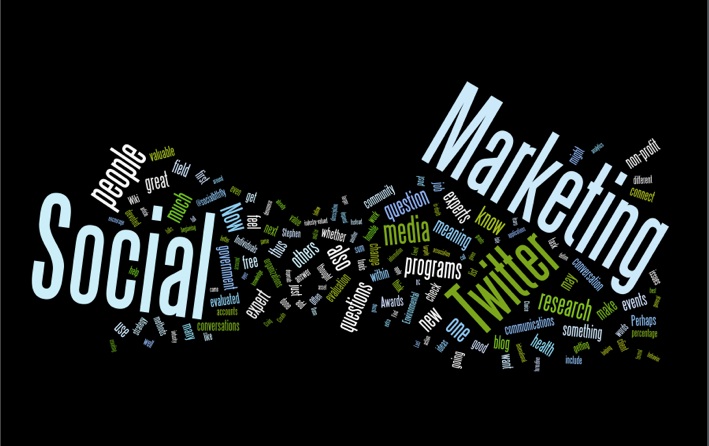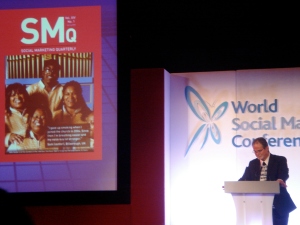**This article I wrote was originally published at ReadWriteWeb on September 10, 2008. And P.S., I still don’t have the internet, but the install is scheduled for Wednesday…hence the blogging delay. Thank you for your understanding!

And we’ve got the answer. Three of them actually: Listen, learn, and let go.
Let’s face it, Web 2.0 is a buzzword. And when it comes to government, change, and innovation, we have to reach beyond buzzwords. Surprising to some, the government isn’t too far beyond.
The other week Mark Drapeau, Government 2.0 columnist for Mashable, suggested that the government is currently in a state of 1.4, at least when it comes to Twitter.* I would agree, however, as my lovely professors back in grad school taught me to say, “it depends.”
Government is doing some amazing social media initiatives to better serve their constituents, and why not – social media is all about increasing the democratization of communications. The government serves its people, and thus, it’s a perfect match.
We government-familiar types know of the greatness that is CDC – from their virtual world explorations in Whyville and SecondLife, to their numerous podcasts, e-cards, MySpace page and blog, and their CDC-TV channel, they are leading the way. But there’s more.
 The EPA has its own cause on Facebook for its EnergySTAR program to stop global warming. The U.S. Intelligence Agency has it’s own data-sharing and social network-esque called Intellipedia. TSA uses its blog Evolution of Security as instrumental to its customer service abilities. Not to mention, there are currently 7 head directors and decision makers with their own blog. But, I will admit that some areas in government just need some more coaching.
The EPA has its own cause on Facebook for its EnergySTAR program to stop global warming. The U.S. Intelligence Agency has it’s own data-sharing and social network-esque called Intellipedia. TSA uses its blog Evolution of Security as instrumental to its customer service abilities. Not to mention, there are currently 7 head directors and decision makers with their own blog. But, I will admit that some areas in government just need some more coaching.
If you are within government or outside of government, here are three helpful strategies to be the social media maven for your agency: Listen. Learn. And Let go.
These three strategies are listed in no particular order as they all circle one another. Think back when you learned how to ride a bike. You did not let go of the training wheels, until you have learned how to ride the bike. But, you couldn’t learn how to ride the bike, until you listened to the instructions. Same deal.
Listening
The more you learn about the space, the more comfortable you will become. This will involving listening to webinars and speakers on the topic. For starters, the CDC is having a live web dialogue on September 18th with an expert panel to talk about how government health agencies can integrate social media practices into their initiatives. There are currently 217 people signed up!
Listening also involves learning how to search, and how to search effectively. Largely, learning how to navigate the RSS feeder. I know it looks intimidating. I was at first too. But, it’s called Real Simple Syndication for a reason, because it really can be simple. Check out Google Reader or Bloglines or email me, and we can work together.
Learning
While listening, you will learn. It’s inevitable. I have best found that learning is maximized when you live with what Geoff Livingston said best in one of Buzz Bin blog posts, “You cannot underestimate the value of remaining teachable.” Attending speakers, applying your knowledge and participating in the space as an individual all help facilitate learning.
For example, Sec. Mike Leavitt and a group of world leaders came together in 2007 to create the Pandemic Flu Leadership Blog. Through this short-term blog, conversations and discussions were shared leading up to an offline Leadership Forum. Taking the lessons learned from this experience, Sec. Leavitt launched his own blog on behalf of the U.S. Department of Health and Human Services in August 2007.
Letting Go
As your listening and learning combines, eventually, you will feel more comfortable in letting go. And letting go can include baby steps. Like, the case of Sec. Leavitt, you can build upon past activities. Do gather the statistics. Do highlight other case studies.
• Perhaps, instead of creating your own social network, it begins with placing a web badge or banner about your initiative on a social network.
• Perhaps, instead of creating a Twitter account feed, you conduct Twitter searches for your government agency’s name and important keywords.
• Perhaps, instead of creating your own blog, first do a guest entry on an already established blog.
• Perhaps, when pitching new information or publications to traditional news outlets, see if that media organization has a relevant blog column or social media reporter and share your information with him or her.
The ideas are endless, which is why being relevant is core. Let’s not be doing things for the sake of doing them. Let’s connect in meaningful ways. The tools may be new, but the importance of relationship-building and support remain constant. I’m excited to have the opportunity to highlight in this Government 2.0 column ways our government is being innovative as we all listen, learn and let go together.
*Context and attribution corrected.






















